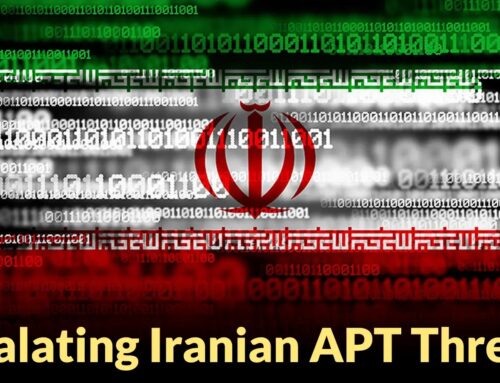
Arizona Woman Sentenced for Helping North Korean IT Workers by Operating Laptop Farm
The Arizona Laptop Farm: Unmasking State-Sponsored Cyber Infiltration
The recent sentencing of an Arizona woman for her role in a sophisticated scheme enabling North Korean IT workers to infiltrate American companies sends a stark warning about the evolving landscape of state-sponsored cyber threats. This operation, described as one of the largest documented instances of state-sponsored employment fraud, highlights the ingenious and often unconventional methods nation-states employ to circumvent sanctions, generate revenue, and potentially engage in industrial espionage.
Understanding the mechanics of this “laptop farm” and its implications is crucial for cybersecurity professionals, IT managers, and business leaders. It underscores the need for robust vetting processes, continuous monitoring, and an acute awareness of the subtle indicators of malicious activity that extend beyond traditional network intrusions.
The Modus Operandi: How a “Laptop Farm” Facilitated North Korean Infiltration
The core of the operation involved the creation of a “laptop farm” – a physical setup housing numerous laptops, each logged into various remote IT positions within legitimate U.S. companies. The Arizona woman acted as an intermediary, facilitating the impersonation of American-based IT professionals by North Korean operatives. The process was multi-faceted:
- Identity Exploitation: The scheme likely leveraged stolen or synthetic identities to establish seemingly legitimate profiles for the North Korean workers. This could involve purchasing compromised credentials or fabricating new ones to bypass initial background checks.
- Remote Control Infrastructure: The “laptop farm” provided a physical presence on U.S. soil, allowing North Korean IT workers to remotely access these machines. This made it appear as though the work was being performed from within the United States, circumventing geographical restrictions and IP-based filtering.
- Financial Laundering: Millions of dollars generated from salaries paid by American companies were funneled back to the Democratic People’s Republic of Korea (DPRK), providing vital revenue for the regime and circumventing international sanctions.
- Skill Disguise: The North Korean IT workers, often highly skilled, could perform legitimate development, maintenance, and support tasks. This allowed them to blend in and establish trust within organizations, potentially gaining access to sensitive data or intellectual property over time.
The Strategic Implications: Beyond Financial Gain
While the immediate financial benefit to the DPRK is a significant concern, the broader strategic implications of such operations are far more troubling:
- Economic Sanctions Evasion: The scheme directly undermined international efforts to cripple North Korea’s nuclear and ballistic missile programs by providing a substantial, illicit revenue stream.
- Industrial Espionage and Data Theft: Once embedded within a company’s systems, these operatives could potentially exfiltrate sensitive corporate data, intellectual property, trade secrets, and even classified government information if the companies were contractors.
- Supply Chain Compromise: Infiltrating IT teams could lead to subtle, long-term compromises of software or hardware developed by the unsuspecting companies, introducing backdoors or vulnerabilities into the supply chain of critical infrastructure or other organizations.
- Long-Term Campaign Readiness: Establishing persistent access and building trust within target organizations could allow North Korea to plant malware for future use, such as ransomware campaigns or destructive attacks, as part of a broader cyber warfare strategy.
Remediation Actions and Proactive Defense Strategies
This case serves as a critical reminder for organizations to bolster their defenses against insider threats, sophisticated social engineering, and the often-overlooked vector of employment fraud. Traditional network perimeter security is insufficient when the threat actor is literally “inside” the organization.
- Enhanced Background Checks & Vetting:
- Implement rigorous, multi-layered background checks for all remote and contract IT personnel, extending beyond basic criminal checks to include identity verification and social media scrutiny.
- Utilize third-party services specializing in deep background investigations to detect inconsistencies or red flags.
- IP Geolocation and Behavioral Analytics:
- Monitor login locations and IP addresses for remote workers. Flag unusual or inconsistent geographic locations.
- Employ User and Entity Behavior Analytics (UEBA) tools to detect anomalous login times, data access patterns, or sudden changes in behavior that deviate from a user’s baseline. For instance, a long-term remote worker suddenly logging in from a high-risk sanctioned country should trigger an immediate alert.
- Privileged Access Management (PAM):
- Implement strict PAM controls to limit access to sensitive systems and data on a “least privilege” basis.
- Regularly review and revoke unnecessary privileges.
- Force multi-factor authentication (MFA) for all privileged accounts and critical systems.
- Continuous Monitoring and Threat Intelligence:
- Deploy robust Endpoint Detection and Response (EDR) and Security Information and Event Management (SIEM) solutions to monitor all endpoint and network activity.
- Subscribe to threat intelligence feeds to stay abreast of nation-state tactics, techniques, and procedures (TTPs), particularly those associated with countries like North Korea.
- Zero Trust Architecture:
- Adopt a Zero Trust model where no user or device, whether internal or external, is implicitly trusted. All access requests are authenticated and authorized based on context.
- Employee Training and Awareness:
- Educate HR, hiring managers, and IT teams on the evolving tactics of employment fraud and insider threats, including those originating from state-sponsored actors.
- Train employees to report anything suspicious, from unusual communication patterns to unexpected system behavior.
- Supply Chain Risk Management:
- Vet all third-party vendors and contractors with the same rigor applied to internal employees, especially those with access to your internal systems or data.
- Demand transparency on their security postures and employee vetting processes.
Conclusion: Heightened Vigilance in a Connected World
The Arizona laptop farm case is a vivid illustration of how nation-state actors are extending their reach beyond traditional cyberattacks into the realm of human resources and identity exploitation. As remote work becomes more prevalent, the attack surface for such employment fraud schemes expands. Cybersecurity is no longer solely about securing networks and systems; it also critically involves vetting personnel and monitoring their digital footprints and behaviors.
Organizations must adopt a comprehensive security posture that integrates robust technical controls with stringent human resource policies and continuous vigilance. The threat from state-sponsored actors is persistent and adaptable; our defenses must be equally so. Ignoring these evolving tactics will undoubtedly lead to significant financial loss, intellectual property theft, and potentially, national security compromises.





